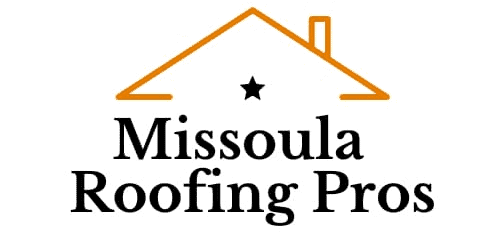What Does Commercial Roofing Mean?
Commercial roofing refers to the process of installing and maintaining roofing structures on commercial buildings, such as office buildings, warehouses, retail stores, and other non-residential structures.
Although commercial roofing systems primarily have the same function as residential roofs of protecting property and its contents from the elements, including rain, snow, wind, and sun. But, they are quite different in that it typically involves larger and more complex roofing structures, as well as different materials and installation methods.
Commercial roofing materials typically include single-ply (EPDM, PVC, TPO), concrete, modified bitumen, tar and gravel, built-up roof, and more. While on the other hand (depending on weather conditions) residential roofing materials typically include concrete tiles and asphalt shingles.
Now that it is clear what commercial roofing means, let’s explore what are its different types and commonly used materials.
Different types of commercial roofing systems
- Flat roofing: Flat roofs are the most common type of roof for commercial buildings. They are characterized by their low slope and flat or nearly flat surface. Flat roofing systems are typically made of asphalt, rubber, or other waterproof materials.
- Metal roofing: Metal roofing is a durable and long-lasting option for commercial buildings. It is made of metal panels or shingles and can be installed in a variety of styles, including standing seam, corrugated, and ribbed.
- Single-ply roofing: Single-ply roofing refers to roofing structures that are made of a single layer of material, such as rubber or PVC. Single-ply roofing is lightweight, flexible, and easy to install, making it a popular choice for commercial buildings.
- Built-up roofing: Built-up roofing, also known as BUR, is a traditional roof that consists of multiple layers of asphalt and other materials. It is often used on flat or low-sloped roofs and is known for its durability and long lifespan.
- Modified bitumen roofing: Modified bitumen roofing is a type of asphalt-based roof that is reinforced with fiberglass or other materials. It is often used on flat or low-sloped roofs and is known for its durability and resistance to weathering.
Each type of commercial roof has its own unique benefits and is suitable for different types of commercial buildings and climates. It is important to choose the right commercial roof for the specific needs of the building.
Commonly used materials for commercial roofing
- Asphalt: Asphalt is a common material used in commercial roofing systems. It is durable, waterproof, and relatively inexpensive, making it a popular choice for many types of commercial buildings. Asphalt can be used in a variety of forms, including shingles, rolled roofing, and built-up roofing.
- Rubber: Rubber is a popular choice for commercial roofing due to its durability, flexibility, and resistance to weathering. Rubber roofing is often made from recycled materials and is a sustainable option for commercial buildings.
- Metal: Metal roofing is a long-lasting and durable option for commercial buildings. It is made of metal panels or shingles and can be installed in a variety of styles, including standing seam, corrugated, and ribbed. Metal roofing is resistant to weathering and can be coated to reflect sunlight, making it an energy-efficient option.
- TPO (thermoplastic olefin): TPO is a synthetic rubber roofing material that is known for its durability, flexibility, and resistance to weathering. It is often used on flat or low-sloped roofs and is a sustainable choice for commercial buildings.
- PVC (polyvinyl chloride): PVC is a synthetic plastic roofing material that is known for its durability, flexibility, and resistance to weathering. It is often used on flat or low-sloped roofs and is a sustainable choice for commercial buildings.
Factors to consider when choosing a commercial roof
- Climate: The climate in which the building is located will play a significant role in the type of roof that is best suited for the building. For example, a roof that is effective in a warm and dry climate may not be suitable for a cold and wet climate.
- Building usage: The intended usage of the building will also affect the type of roofing system that is chosen. For example, a roofing structure that is suitable for a warehouse may not be suitable for a retail store.
- Budget: The cost of the roof will be an important factor in the decision-making process. It is important to consider the initial cost of the roof as well as the long-term costs of maintenance and repair.
- Energy efficiency: Many commercial building owners are interested in energy-efficient roofing structures to lower energy costs. Roofing materials and systems that reflect sunlight and have a high insulation value can help to reduce energy usage in the building.
- Durability: The durability of the roofing system is also an important factor to consider. A roof that is prone to leaks or damage may require more frequent repairs and maintenance, which can be costly in the long run.
Proper commercial roofing is crucial for the long-term stability and functionality of a commercial building. It is important to choose the right commercial roof and materials for the specific needs of the building and to regularly maintain and repair the roof to ensure its continued effectiveness.
